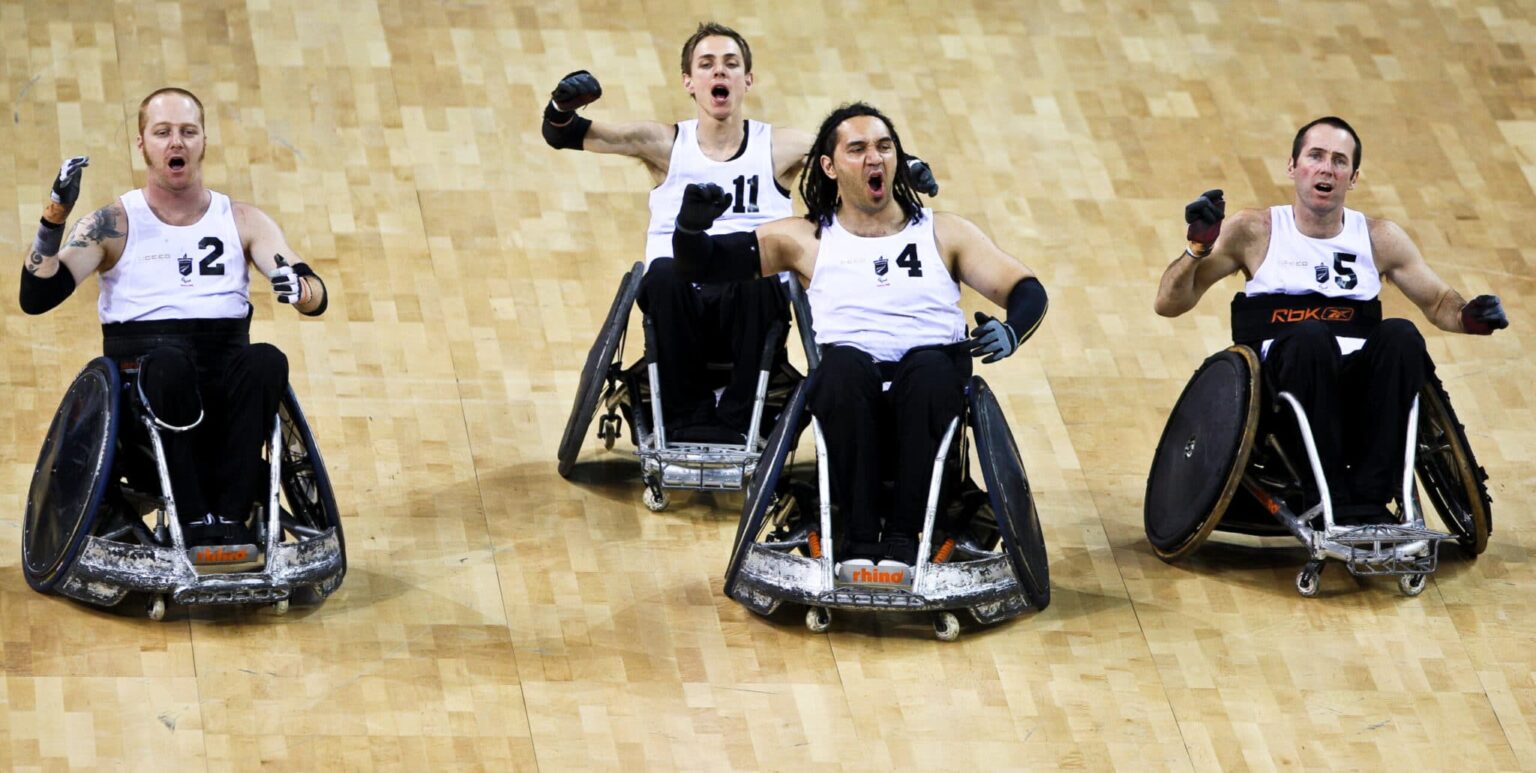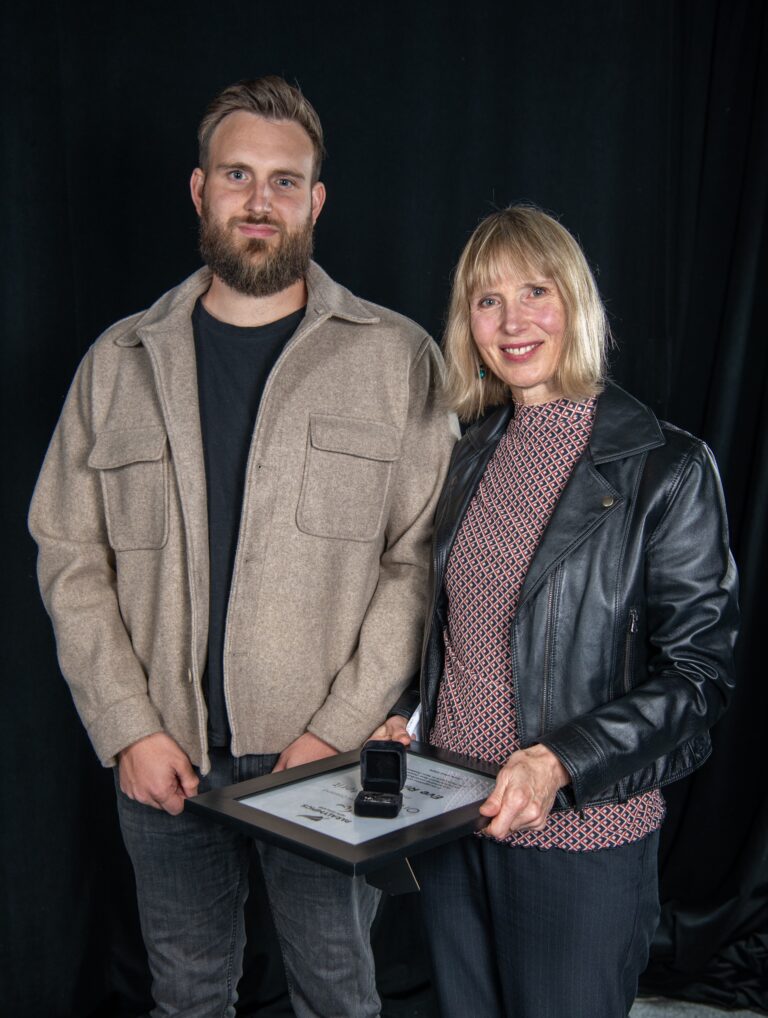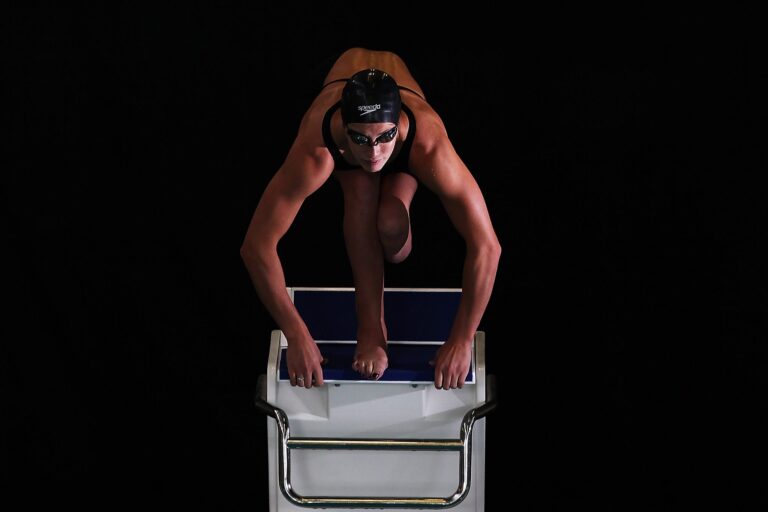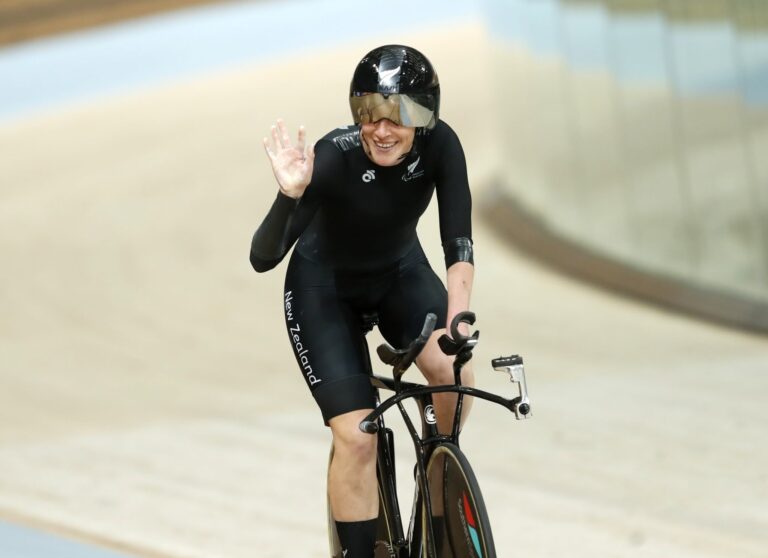Paralympian #156 Jai Waite represented New Zealand at two consecutive Paralympic Games in Wheelchair rugby. Jai officially received his ‘numbered’ Paralympic pin as part of The Celebration Project in New Plymouth in 2019. Jai tells us more about how Para sport impacted his life.
I was 24 years old when my old life ended, and my new life began. I was on the other side of the world when I broke my neck and became paralysed from the neck down.
It was September 2nd, 2000. I was 3 months into my overseas experience (OE). A Taranaki lad roaming Europe with 3 of his mates from Waikato University. We we’re on a Greek island called Ios – the Lonely Planet had it listed as ‘party island for the under 30s’ – a 10-hour ferry ride from Athens. The day of my accident was the last night of 7 on the island. We were down on the beach and I had just won 2 dozen beer in a horizontal bungie competition. I called to my mates that I was just going down to the sea to wash the sand off my body. I walked in waist deep into the ocean and went to duck dive through the half meter swell that was gently lapping in. Almost as instantly as my head pieced the water I was struck in the face with a huge smack – it was a sand bar. It was like being king hit, I was knocked out instantly. As I came around, I found myself floating on top of the sea staring down at the bottom of the ocean.
I tried to rouse myself up on to my feet to stand – there was no movement. I began to panic as I started to breath in water – one more mouthful, one more mouthful. Then one of my mates who had luckily been watching me enter the water sensed something was wrong and came down and turned me over. He asked, “What are you doing?“, puzzled at why I was just floating about. I coughed out “I can’t move!“. He called to people on the beach and luckily there were a couple of Swedes who had worked in a spinal unit. I was moved up to the sand on a surfboard and the realisation of what had just occurred started to sink in. Panic and fear overwhelmed me.
I then had a 5-hour trip from Ios to Athens via boat and plane. The next 3 days were spent transferring between hospitals until my medical insurers found a way out of the Greek medical system and to a hospital in Austria to perform the surgery to repair my broken vertebrae.
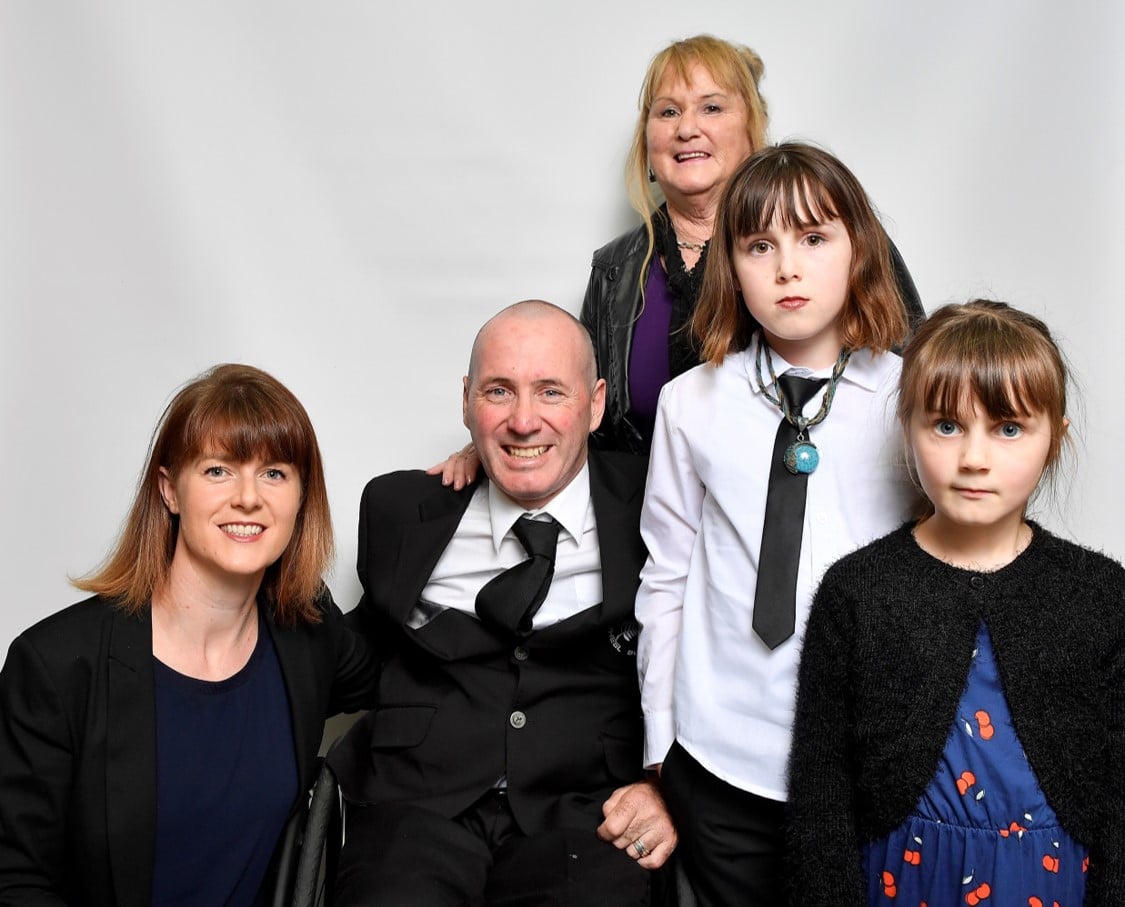
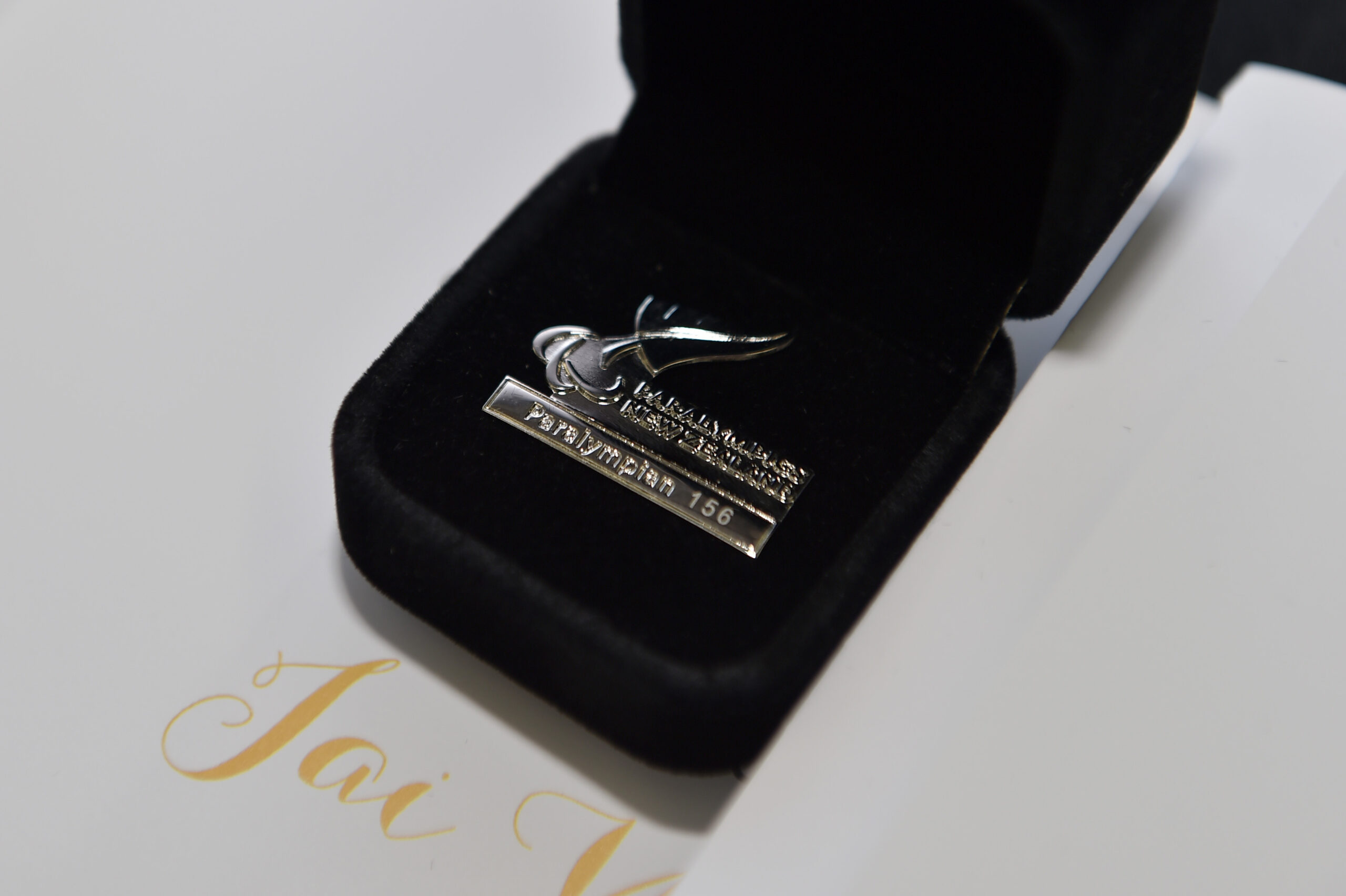
After a month in hospital in Vienna, I returned home to the Auckland Spinal Unit where I had to learn how to live in this broken body. Initially I had the belief that I would recover – I still had full feeling – and I hadn’t really tried to think of a life in a chair as my outcome. As the months past and movement wasn’t returning, gradually the sadness set in. The hardest time was those early months. My level of disability (C5/6 tetraplegic ASIA type C – fancy title for impaired upper limb movement, weak to no triceps, no hand function, no movement from the chest down) left me very dependent early on. I couldn’t dress myself, feed myself, brush my teeth. I even needed help to go the toilet. What was worse was I had always enjoyed sport; rugby, cricket, volleyball, golf, football, squash – I loved it all. What was there for me now when I couldn’t move 90% of my body?
I was about 5 months into my rehab at Auckland Spinal Unit when TASC (Spinal Support NZ these days) sent someone to meet me who was of a similar disability. A bloke called Grant Sharman turned up. He had just retired from the Wheel Blacks off the back of a Bronze Medal at the Sydney 2000 Paralympic Games. He said, “you’d be perfect for Wheelchair rugby“. At that stage it was taking me 40 seconds to push a wheelchair from one side of the gym to the other – sideline to sideline.
I didn’t go along to Auckland Wheelchair Rugby straight away. I left the spinal unit and spent time trying to negotiate the outside world. The first year out I was trying to fit into my old life but in a wheelchair. I would go out, but my confidence was low. I was still mourning the life I had lost – I put on a brave face and carried on. I made small progressions in my independence but nothing major. I still needed full time carer support. Soon all my mates were departing for their own OE’s. I could feel the sadness start to slide back in and then I remembered Grant suggesting Wheelchair rugby.
I contacted Parafed Auckland (now Disability Sport Auckland) and found out the practice days. I was nervous turning up on the first day – but I need not have been. All the guys were awesome. Straight away they had a chair set up. I was lifted in, strapped in, and let loose. The first hit rattled through my body – it felt great. I had played rugby since I was 5, and now I found it again.
The next 12 months I played every training session (Thursday’s and Saturday’s). I had a classifier come and look at my muscle function. I was given a classification of 1.0 which is the lower end of function for rugby, so my core roll was blocking and screening for the higher point players on the team. I practiced my ball skills daily, passing, bouncing. I took my chair home and started pushing at the botanical gardens to get fitter. By now I could push a chair from end to end of the basketball court in 25 seconds. Rugby was helping my body grow stronger, and emotionally I felt prouder. As a sport wheelchair rugby had a good profile in New Zealand. I found when I went out now, ‘Joe Public’ would treat me different when I said, “I played wheelchair rugby“. Instantly you can see people look at you with less pity and more ‘you’re tough and strong’.
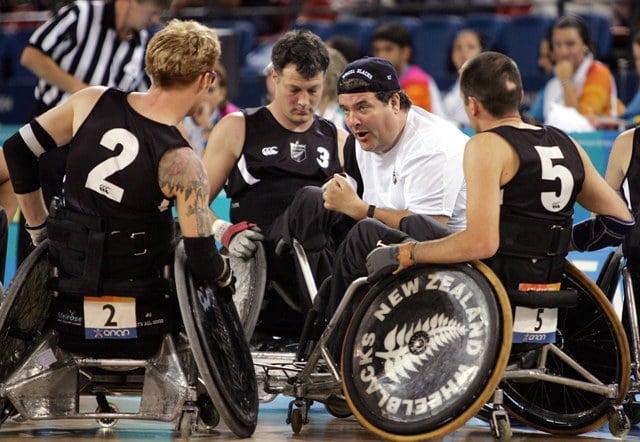
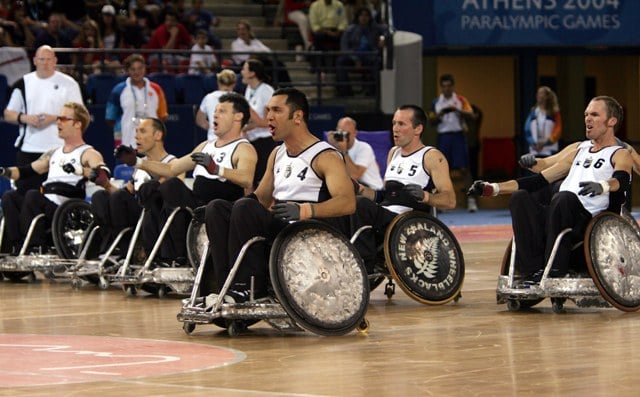
2002 I played my first New Zealand Nationals. I must have done alright at the nationals because by the next year Paralympian #107 Grant Sharman – now the coach of the Wheel Blacks – asked me to come to some training camps for the Wheel Blacks. I tried to sponge up every bit of information I could. My game was pretty raw early on. I had to learn the intricacies of screening and blocking, tactics, game management, but the most life changing learnings came off the court. We were a fully funded program and had access to nutritional advice, and sports psychology. These things still live with me today. They have kept me healthy and well. However, the most important learning I had was rooming with teammates. This where I learnt to live well in a wheelchair. The people you room with have years of lived experience and know all the techniques to dressing, cooking, wheelchair skills, bowel & bladder care. Transferring from bed to wheelchair, wheelchair to car. These things are passed down from old athlete to new. There is no better environment to do this – and this is how wheelchair rugby changed my life. With this confidence I felt less dependent. I could do more. I felt confident enough to ask a girl out on a date. That girl Rebecca is now my wife of 13 years.
After my first Wheel Blacks camp I left with a training program. I was soon a carded athlete with the New Zealand Academy of Sport. I started travelling with the Wheel Blacks in the build up to the Athens 2004 Paralympics. I was still very much on the fringe of the team. We went places like Sydney, Cairns, Alabama, Tampa Bay. My training schedule was 6 days a week, often with 2 sessions a day. I was pushing a chair from end to end of the basketball court in a tick under 20 seconds. In my mind I would train and push myself to be not only the fastest 1.0-point player to the world, but I wanted to be as fast as 2.0-point players.
The announcement for the team to go to Athens 2004 Paralympics came via a phone call from the coach. The best part for me was telling my friends and family and seeing their pride in me. I went from Jai ‘who had an accident’, to Jai ‘the Paralympian’.
We left in August, spent a week outside of Athens acclimatising to the Greek autumn weather in a camp with the majority of the New Zealand Paralympic Team. We entered the Games Village about 3 days before the Opening Ceremony. The village was cool. Every nation represented, and the food hall with options befitting the scale of representation.
The Opening Ceremony really opens your eyes to the scale of the Paralympics. 60,000 people sitting and clapping in the athletes.
Wheelchair rugby competition started in the second week. We came into the Paralympic Games ranked 5th in the world. The USA had won every single Paralympic Games gold since wheelchair rugby was introduced and were expected to win again. Over a 5-day schedule we played a game a day working our way to the final. I was still the understudy to Bill Oughton our leading 1.0, so my game time was limited but I played the role of sub the best way to support my team. We rolled onto the court September 25th 2004 for the final against Canada. In the crowd I had my girlfriend Rebecca and my mates who had supported me through my rehab. My parents and family were back home watching on TV. After a tightly fought match we won the game 31-29, still New Zealand Wheelchair Rugby’s greatest day. I remember rolling onto the dais, receiving my medal and the sense of pride as they played New Zealand’s anthem.
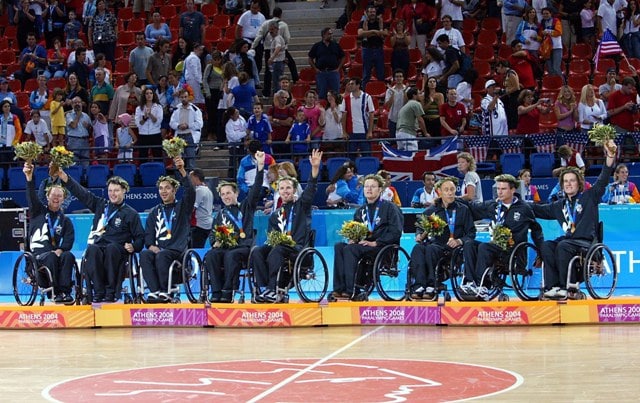
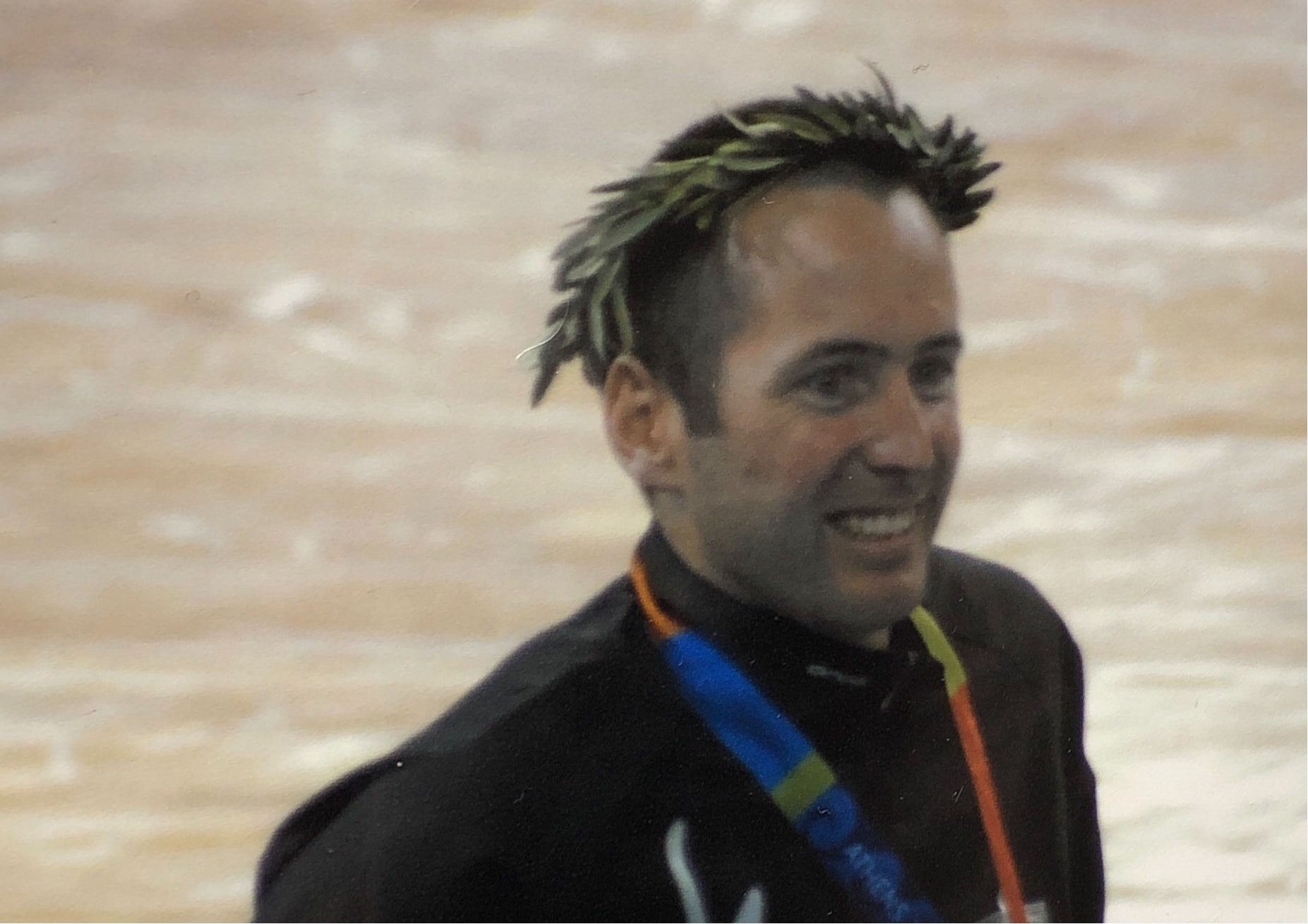
What we had just achieved didn’t really hit me until we were riding back to the village on the bus and the motorway lights were flashing by – I thought about myself 4 years earlier riding in the back of an ambulance having broken my neck looking at those same lights flashing by – now, 4 years later, I was riding through Athens with a gold medal round my neck.
After the winning the gold I received a Prime Ministers Scholarship, I gained a Post Graduate Diploma in Multimedia and have been a Documentary Editor now for 15 years. I went to the Beijing 2008 Paralympics, we won silver at the 2006 World Championships, travelled the world with the Wheel Blacks for 7 more years. I got married in 2007, and we now have 2 girls Emily and Claire.
My life would have been completely different had I not found Wheelchair rugby. I have met some great people in the sport, and I have some lifelong friends who I’m proud to call my mates. Sport is often quantified by results like medals, but I believe the true success is the impact it has on your character and the life skills I carry with me today.
Jai Waite
New Zealand Paralympian #156
Find out more about Paralympian #156 Jai Waite.
Cover photo credit: Getty Images

